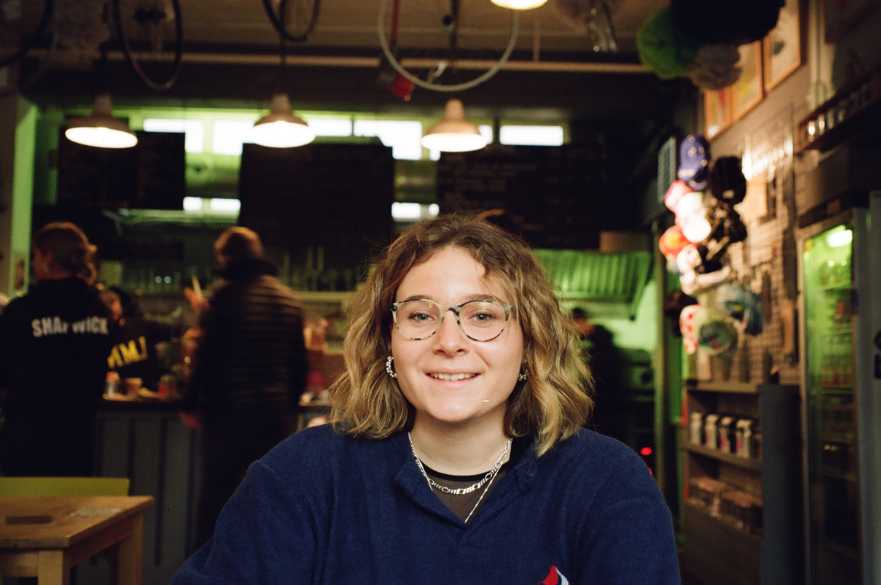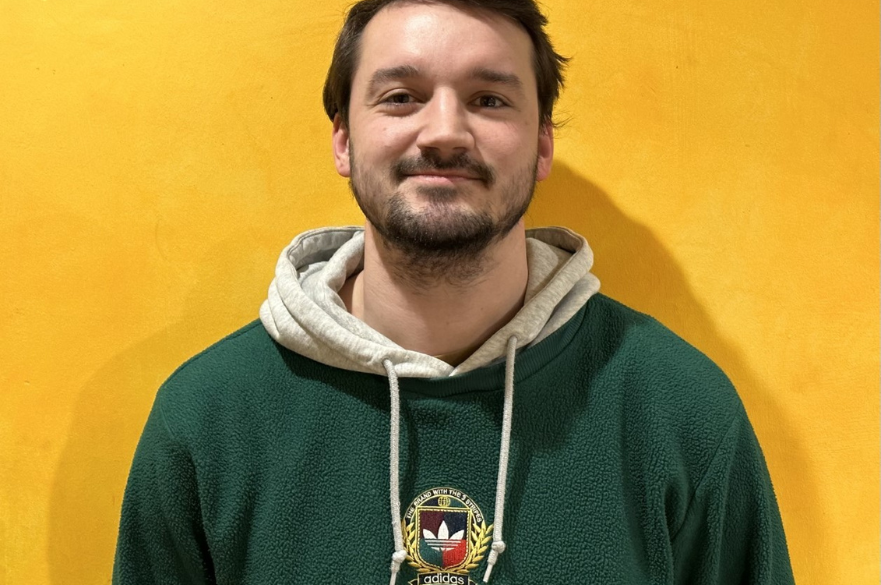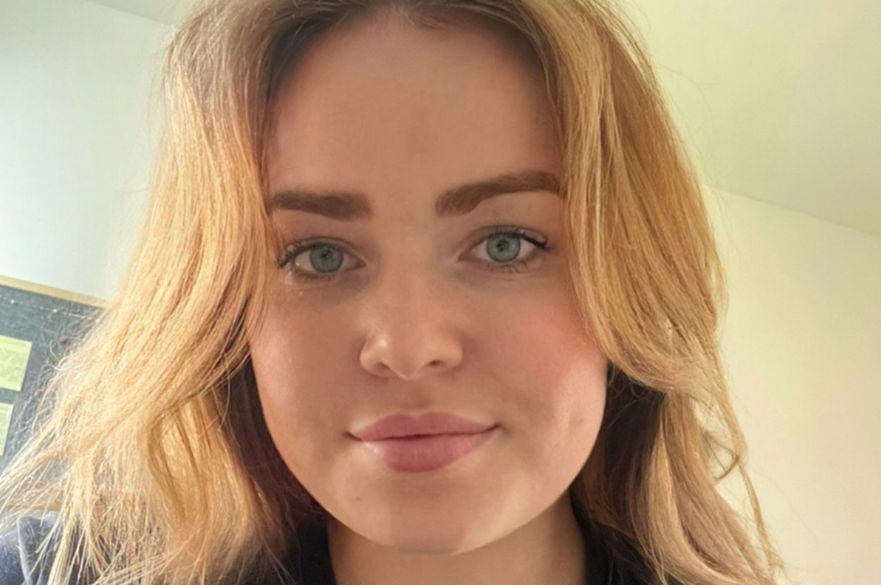
“NTU appeared the obvious choice with such high student satisfaction and during my interview, I immediately felt welcome and wanted as a student.”
More about Harriet May
Why NTU?
Why did you choose to study a postgraduate degree in Paramedic Science?
"With a strong interest in hands-on-healthcare, I felt as though my previous biomedical science degree would not enable me to follow my career aspirations. I have worked in the NHS as a healthcare assistant for three years, alongside my undergraduate course, on various wards ranging from the emergency department to maternity to neurorehabilitation. All the experience I have gained has led me to the idea that a post-graduate pre-registration healthcare course might provide me with the foundations for an exciting career."
Why did you choose your course and NTU?
"NTU is one of the first universities to implement a pre-registration healthcare course at master’s level to attain a paramedic registration. NTU appeared the obvious choice with such high student satisfaction and during my interview, I immediately felt welcome and wanted as a student. I also believed Nottingham itself would provide me with a good variety of placement experiences due to the combination of city scenarios and jobs in rural areas. Hospitals can be far enough away from the scene meaning as a paramedic there is increased clinical responsibility."
What’s your experience been like of your course so far?
"The course has so far been exciting but also tough, I definitely underestimated the time pressures associated with a full-time master’s course! The nature of the post-graduate course means that people from all backgrounds are welcome. During teaching sessions, lecturers have been interested in and appreciated our previous experiences in healthcare and have even encouraged students to communicate advice regarding the management of pre-hospital scenarios or share tips to maintain our mental health when dealing with emotional placement experiences. With the course being relatively new, the staff are keen to hear our feedback to improve teaching and placement experience.
A highlight of mine would be the friendliness of the teaching staff and their enthusiasm for pre-hospital teaching. The teaching staff also come from a plethora of different backgrounds enabling students to potentially find a niche within the developing role of a paramedic."
Have you been involved in any projects or extra-curricular activities that have supplemented your studies run through NTU?
"I am the kind of student that likes to sign up for everything! When I started, I was keen to get involved in the Paramedic Society and was subsequently elected as Vice President. I hoped to bring experiences from my time as President of the University of Birmingham Water Polo Club and the Endocrinology Society within the Medical School whilst doing my undergraduate degree. During my time helping run the Paramedic Society, we organised talks from external guests who had interesting pre-hospital backgrounds and provided days for students to practice pre-hospital scenarios before their practical exams.
I was also keen to volunteer for a charity and after an interview I was selected for a position in the organisation called ‘Street Doctors’. Volunteering for this amazing charity enables me to visit schools, youth centres and prisons to teach young vulnerable people about the dangers associated with knife crime and prepare them with a set of life-saving skills to reduce death from such incidents.
During my first year, one of my course-mates asked if I would like to do a triathlon which sparked my interest in this sport! I joined the local Nottingham Triathlon Club and raced in a half ironman and am now currently training for a full ironman in September!
I think it is important to note that as a post-graduate student, the majority of us have to earn money to support ourselves on this course. I have a few flexible jobs to maintain a small financial income whilst I am on this course, however, this is where time pressures really come in to play!"
What does Social Sciences mean to you?
"Social science is an interesting area. With my love for science of the body I have combined it with my passion to improve other people’s lives. I believe that the knowledge I have been fortunate enough to receive throughout my education should be shared to improve society. As a paramedic, the most common motivation behind the decision to enter this career is the desire to help people. This is probably the most key characteristic of any frontline worker and is paramount in exploring social science. During this course, the assignments we have been tasked with have encouraged me to think about what impact I am going to have on society as a future registrant and how every contact does actually count. Society, especially in this current climate, is very fragile and as part of an emergency service, it is possible to make a small difference to someone’s life during every shift!"
On placement
Have you completed any work placements on your course?
Do you have any memorable moments from your placement?
"There are highs and lows of placement, and it is definitely not plain sailing! When assigned a practice educator, you are also assigned their rota meaning you work their full-time week and often more if you do their overtime with them too! But the community within the ambulance stations makes the experience all worth it! There is so much comradery and support within stations and they often provide the comical element to the job. My memorable moments, if you are not too squeamish, are putting back into place a dislocated knee with a trauma consultant, my first cannulation and the first stabbing I attended!"
Support
What do you think of the support available from tutors and staff at NTU?
"The support at NTU has been fundamental to me. The things that you experience especially on placement can be difficult to process and it is important that we are all aware of the support that NTU and the ambulance service can provide. I have had to contact my course lead regarding support due to several sad family issues. The staff at NTU were supportive and often messaged me to check on my well-being. They were able to send through work and provide me with video recordings where possible. On my return, the staff were accommodating and helped me get back on schedule where needed. I have been really happy and appreciative of the support I have received."
Outside of the Lecture Theatre
Did you find it easy to make friends and settle in at NTU?
"My course is full of friendly people. I moved from Kent to Nottingham and found temporary accommodation until I soon moved in with one of my course-mates after meeting them on day 1 of the course! With the small cohort sizes, we have all made friends and it has been easy to settle into the university. There are plenty of fares that take place on campus advertising societies, charities, sports clubs, and employment to get involved in. So everyone can find something for them!"
The Next Steps
What’s next for you after NTU?
"I am already looking for Newly Qualified Paramedic jobs at different ambulance services around the country. With a desire to live in a mountainous area or by the sea I am looking to move from Nottingham to the west coast and complete my 2 years as a newly qualified paramedic there. I am currently embarking on my journey into the Army Reserve Unit where I will be excited to learn more medical skills with an emphasis on military trauma."
How is NTU helping you to achieve your career goals?
"The staff at NTU have interests and backgrounds in many different areas from operational work to research to education. With my background in biomedical science, members of staff have been keen to nurture my interest in research and I have been encouraged to think about doing PhD once I have graduated. This is important to me because being a paramedic is a wonderful career, however, I would like to undertake research to improve the service that we can provide."
Has the employability team helped you plan for life beyond NTU as a postgraduate student?
"The employability team at NTU are fantastic with drop-in and online services to help with writing a CV and preparing for interview. I am just about to start applying for jobs as a newly qualified paramedic and will definitely be getting in touch with them if I manage to get any interviews."
Still need help?
-

STUDENT PROFILE
Samuel Foulds
Paramedic ScienceUnited Kingdom
https://www.ntu.ac.uk/study-and-courses/courses/our-students-stories/social-sciences/samuel-foulds
-

STUDENT PROFILE
Sophie Buttner
Paramedic ScienceUnited Kingdom
https://www.ntu.ac.uk/study-and-courses/courses/our-students-stories/social-sciences/sophie-buttner
-

STUDENT PROFILE
Aanchal Singh
Master of Business AdministrationIndia
https://www.ntu.ac.uk/study-and-courses/courses/our-students-stories/business/aanchal-singh